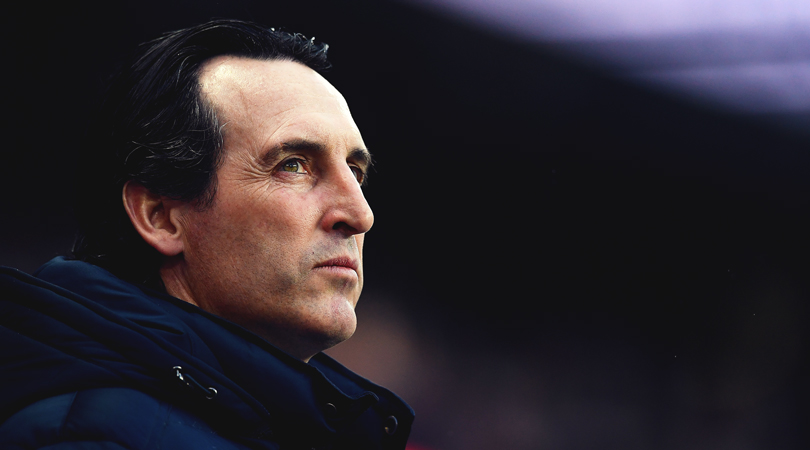Kaka answers YOUR questions: “Manchester City wanted me to become one of their leaders on the pitch – but I didn’t think it was the right time to leave Milan”
Kaka won the World Cup, Champions League and countless league titles with AC Milan, Real Madrid and Brazil in a storied career. But how did the playmaker recover from a fractured spine and why did he touch Old Big Ears before the 2005 Champions League Final? He answers your questions...
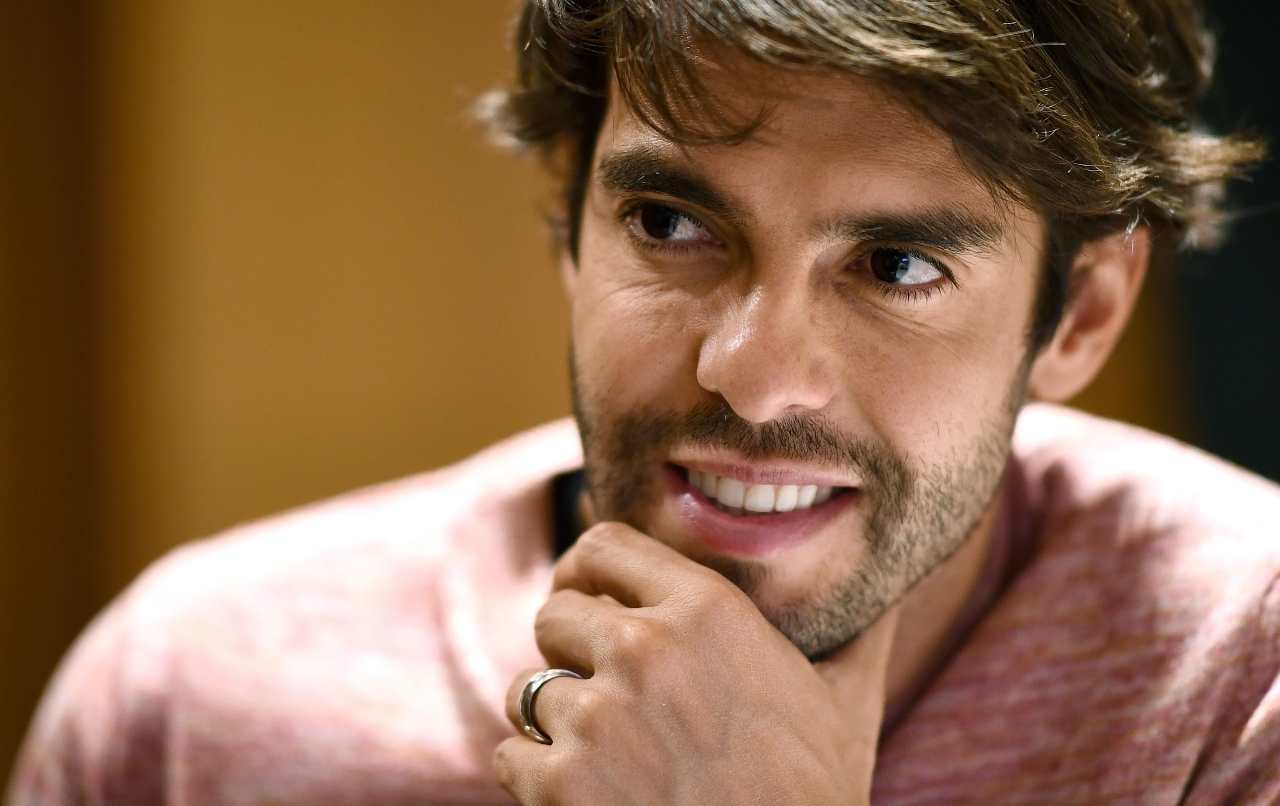
This exclusive interview with Kaka first appeared in the August 2021 issue of FourFourTwo. Subscribe now!
Subscribe to FourFourTwo today and save! You'll get 13 issues per year...
Though it seems difficult to believe given what would follow, there was a time when Ricardo Izecson dos Santos Leite – mercifully, known just as Kaka – was a footballer in Europe with zero expectations of himself.
The Brazilian had landed in Italy as a fresh-faced 21-year-old from Sao Paulo, accompanied by the ominous knowledge that so many of his young compatriots before him had tried and failed. Oh, and he would have to break into a first team of Champions League winners with Rivaldo and Rui Costa standing in his way.
But he did – and fast. Kaka, it turned out, was no ordinary young Brazilian. Milan fans would soon discover that, as he helped to deliver them two more Champions League finals in the next four seasons – one avenging the other – en route to personal Ballon d’Or joy in 2007. He did it in style, too, gliding around pitches continent-wide with his usual balletic grace. It was inevitable that he would become a Real Madrid Galactico, and indeed, he joined for some €67 million – briefly a world record – in 2009.
World Cup success may have evaded Kaka and Brazil’s ‘magic quartet’ after his taste of early glory in 2002, but it hardly diminished his standing among the greats. It’s no wonder that there’s a near-permanent smile on his face as he tackles FourFourTwo readers’ questions about it all…
Which player did you look up to when you were a young lad?
‘mr_birthday21’, via Instagram
My big reference was Rai, the Brazilian attacking midfielder. When I took my first steps in football, he was the main player of that tremendous generation at Sao Paulo who won the 1992 Copa Libertadores Final and Intercontinental Cup against Milan in 1993. Rai played in the same position as me – I couldn’t have had a bigger reference than him in my early days.
The best features, fun and footballing quizzes, straight to your inbox every week.
You were a very elegant footballer – was that something you always had?
Harry Dobson, Peckham
Well, I never set out to be an elegant player. I’d say it was something that developed naturally over the years. It’s funny because I wasn’t an attacking midfielder when I started: when I was eight or nine years old, I was a striker. But I suffered from a growth delay – about two years in terms of bone age – so a former manager of Sao Paulo’s youth teams, Pita, told me to become a playmaker. He said, “You won’t touch the ball there, boy. I’ll move you back a bit and you’ll have a better chance to play.” Only in the middle of the park was I considered an elegant footballer. I don’t recall hearing a compliment like that in my time as a No.9 – I definitely wasn’t that elegant!
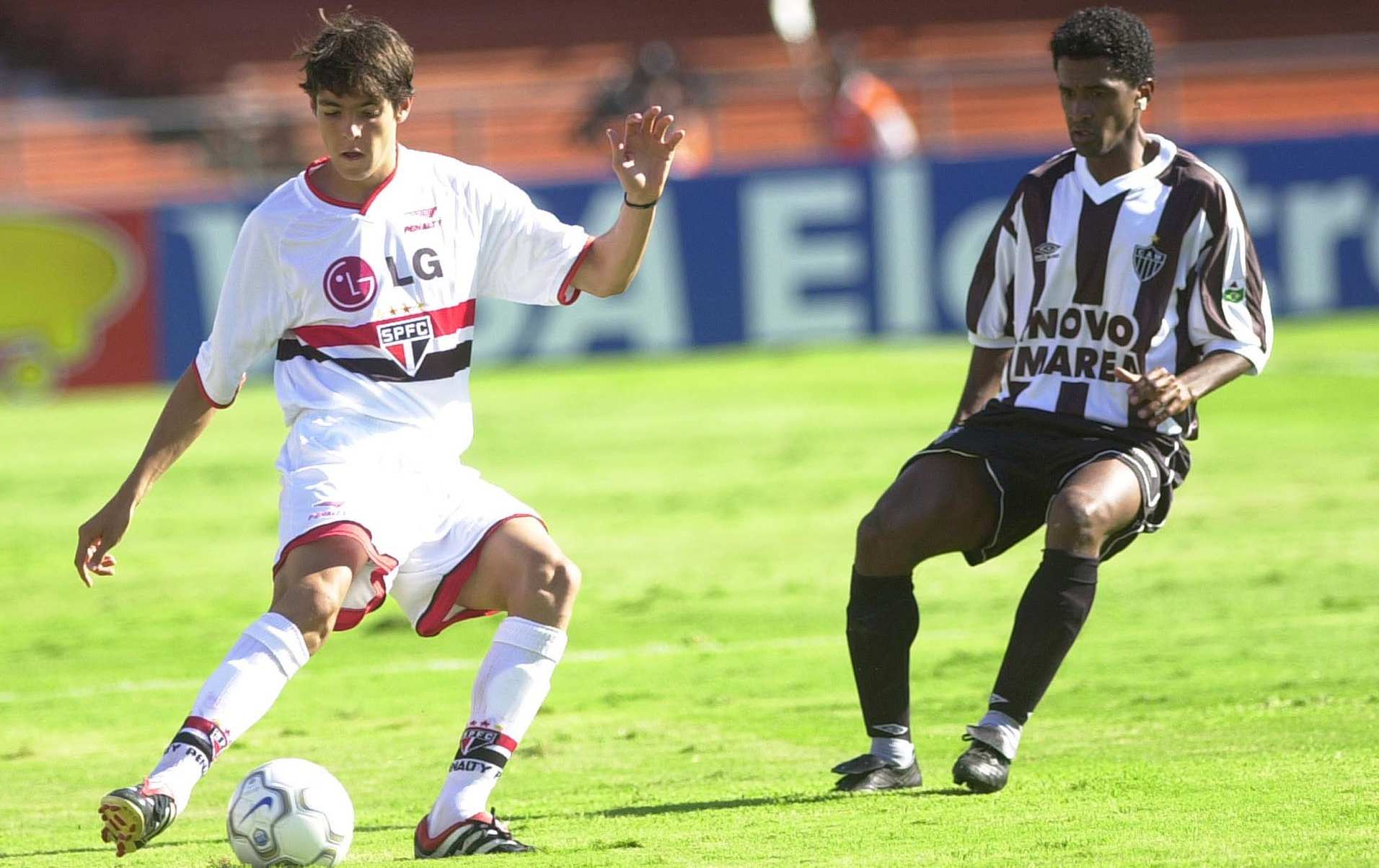
When you fractured your spine at 18, were you hoping just to play football again at any level, or did you dream of making it to the top?
Donal J O’Driscoll, via Facebook
There was a great deal of concern and uncertainty. The biggest question was, ‘Will I be able to play football again?’ – I was playing for Sao Paulo and Brazil’s youth teams, so it was such a decisive moment for my potential career in football. At that stage, you don’t know if the opportunity will arise for you in the first team. Then my doubts were suddenly larger, more drastic.
The doctor told me it wasn’t the time to ask too many questions about football. Instead, I should be grateful and feel lucky because in most similar accidents, the person can’t walk any more. It was a real miracle.
Kaka on fracturing his spine, aged 18
I didn’t know if I’d be able to play the game I loved ever again. My ambition was to become a professional footballer, but my love for football goes beyond that – I still play nowadays, because I love the game. It’s fun.
So, my first question to the doctor was when I’d be able to play football again. [FFT: What did he say?] He just said that perhaps I wasn’t understanding the seriousness of what had happened. The doctor told me it wasn’t the time to ask too many questions. Instead, I should be grateful and feel lucky because in most similar [swimming pool] accidents, the person can’t walk any more. It was a real miracle. From then on, it was about building my faith and working hard to recover.
Was there a chance that you’d have to retire immediately after suffering such a career-threatening injury?
Fabio Campos, Harrow
Well, no doctor guaranteed I’d be able to play again, but none of them said I wouldn’t have a chance, either. They said it would depend on the process of recovery. I had fractured my spine, so in theory it was just about waiting for calcification. I was lucky to keep the movements of my limbs, but it would depend on how my body reacted to that calcification: I could have strange tingling, for example, or other effects that could ruin a career as a footballer. I really had to go day by day. It lasted two months, this uncertain scenario, and I honestly couldn’t plan two days ahead. Then finally the doctors said I was fine to fight for my dream again.
Between David Beckham, Juninho Pernambucano, Cristiano Ronaldo, Roberto Carlos, Andrea Pirlo and, of course, Rogerio Ceni, you’ve been team-mates with some of the best free-kick takers of recent times. So, who was the greatest of them all?
‘Greg’, via Instagram
Wow, I really can’t pick the greatest! Perhaps the most impressive one was Rogerio Ceni, due to his position. You just don’t see goalkeepers with that attribute in every corner. They were all brilliant free-kick takers, though, each one with his own style.
People sometimes ask me if I wasn’t keen to take free-kicks, but I simply list all these guys I played with. There was never a chance of being a second taker – I wouldn’t have dared to get close to a free-kick! Who could have? So, I never had an opportunity to develop this skill. It’s their fault. [Laughs] I played with some incredible specialists and had no chance beside them.
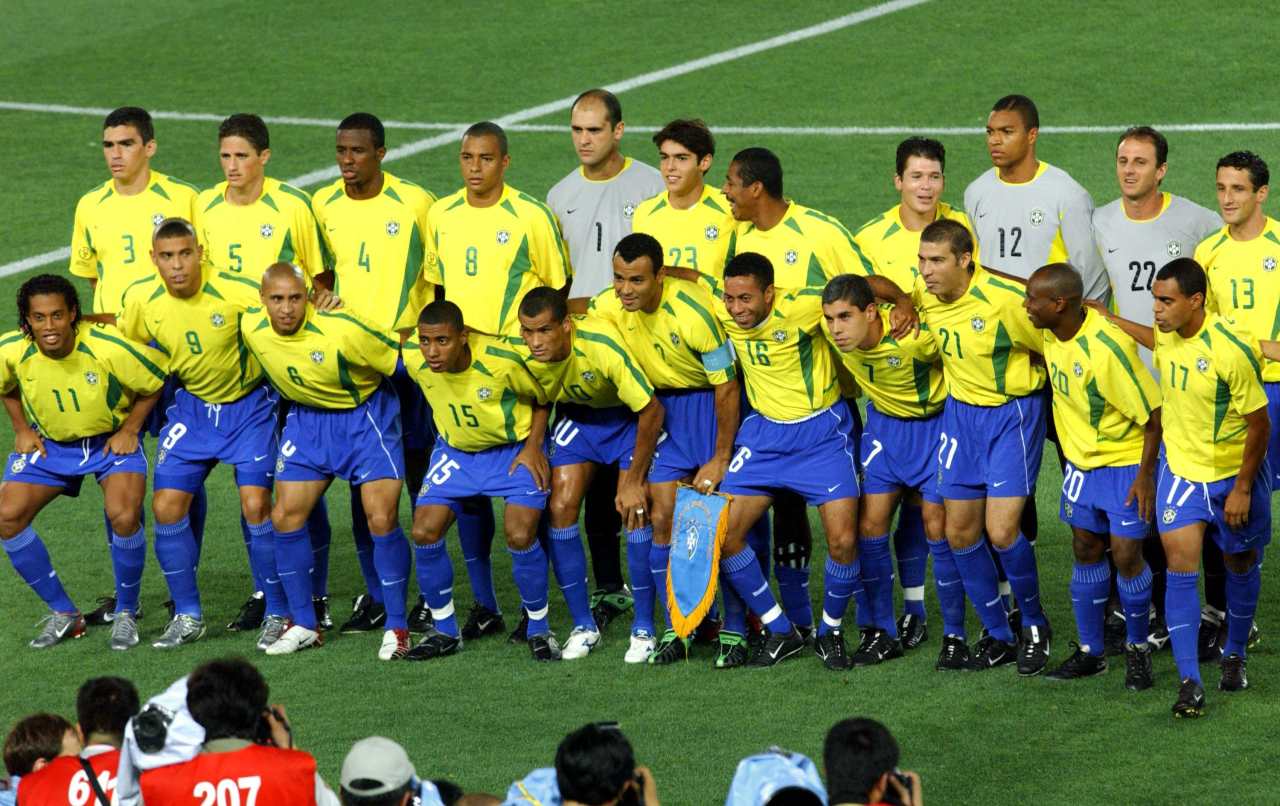
Do you think the experience of being in Brazil’s 2002 World Cup-winning squad, alongside world-class talents, helped to push you to become one of your generation’s very best players?
Max Pollard, via Instagram
Yes, very much so. The experience of playing in a World Cup at the age of 20 and alongside those players was really fruitful – and I’m not just talking about winning the competition, either. That was also brilliant, and it was important to get the lovely tag of being a World Cup winner, but the guidance I got by sharing training sessions and dressing rooms with those incredible guys was a life-changing opportunity.
I was only a 20-year-old lad and the competitors for my role were Rivaldo, Ronaldo and Ronaldinho – the players who were in the starting line-up. Just being able to see how they coped with pressure, responsibilities, injuries and so on was the best lesson I could have received. I became a far better player after that rich experience. Later, I was blessed over the rest of my career to play with other world-class footballers at some famous clubs.
What made you choose Milan over other big European clubs in 2003?
Fuzail Anjum, via Facebook
Well, it was actually the other way around. I didn’t choose Milan – I was chosen by them! There weren’t quite as many offers as some might imagine. At that time, I was going through a tough moment with my club, Sao Paulo. The fans were putting a lot of pressure on some players, and I was one of them. As the titles weren’t coming our way, the supporters weren’t patient with us. During that turbulent situation, I’d just played an under-23 match for Brazil, then Milan made their offer.
Leonardo was there and nearing the end of his playing days – we’d been team-mates together at Sao Paulo two years before. Sao Paulo weren’t keen on accepting the offer, but I wanted to leave. I had a dream to play in Europe, and Milan had just won the Champions League. I’m grateful that Sao Paulo understood my request and allowed me to go, and I’m pleased that the offer came from Milan – but I honestly didn’t have many options to choose from.
What was Milan head honcho Silvio Berlusconi like? Any famous stories from your time together?
Richard Cooper, Epworth
It’s impressive to think about the odd encounters that football can generate. For instance, when I had my very first contact with all of those Selecao stars back in 2002, it happened in Barcelona, after the Brazil squad was announced for the World Cup. Before that, I hadn’t met any of the guys who were playing for European clubs, so just imagine the situation that morning in Barcelona – I’ll never forget it. I went down to get some breakfast, and suddenly there was Ronaldo, Ronaldinho, Denilson, Rivaldo, Roberto Carlos, Cafu… oh my God! I used to play video games with these guys in; now I’m eating breakfast with them. I’m their team-mate and we’re going to play at the World Cup!
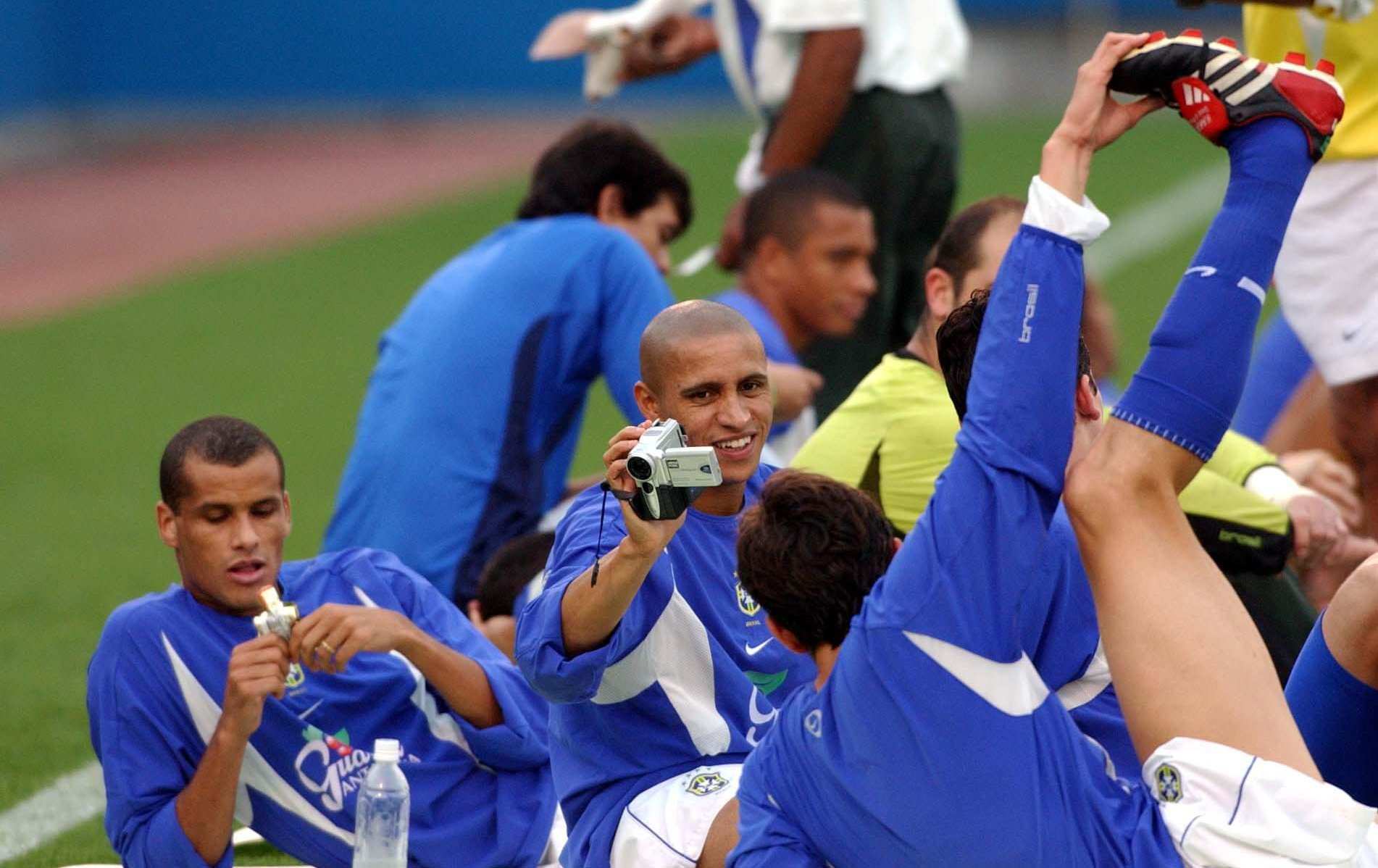
So, football is full of these unexpected encounters, and with Berlusconi it was definitely one of those. Everywhere he went, the attention on him couldn’t have been higher, as he was president of the club and also Prime Minister of the country. At the beginning, I didn’t know how I should behave near him. Then things become normal, you get used to it. Berlusconi was always present and helpful, and I’m so grateful for the time we worked together at Milan.
Is it true Berlusconi attempted to lure you out of retirement to sign for Monza in Serie B recently? Was that ever a genuine possibility?
Rowan Wright, Manchester
Yes it happened. Well, the offer didn’t come directly from Berlusconi – it came through Adriano Galliani. But they were partners, so it was basically Berlusconi behind it. I was already retired when Galliani called to see if I was interested in going to Monza and getting to know the club. They asked if I was available to play a part in their project, but I’d already decided to retire and couldn’t accept their offer.
How difficult was it to adjust from playing in Sao Paulo to life in Milan, and cementing yourself among so many legendary footballers at such a young age?
Craig Hendricks, via Twitter
When I signed for Milan, I had very low expectations about my future there. Don’t get me wrong: that doesn’t mean a lack of confidence. It’s about not creating big expectations for yourself. At that moment, there were several Brazilian players who didn’t adapt to the European lifestyle; a lot of young Brazilians signed for big clubs in Europe but couldn’t stay long, because of the new football style or their new lives off the pitch.
European clubs were getting cautious about investing in Brazilian youngsters, so my mindset was this: ‘Just in case everything goes wrong, I will stay there anyway’. No matter if I don’t like the food, or the place, or if understanding the language is really hard – I want to stay in Milan. And no matter if I don’t play much, because when I arrived the guys in my position were Rivaldo and Rui Costa. But having arrived with low expectations, things were simply too good for me. The food was amazing, the place was excellent, and things went very well on the pitch. It was a wonderful experience.
You quickly took Rui Costa’s place in the Milan side. How much confidence did that give you?
Francesco Scinto, Hemel Hempstead
When Milan signed me, Carlo Ancelotti had a different idea about my style. Then, after my first training sessions in Italy, I realised that everyone at the club was impressed with me. Ancelotti soon saw I had potential. He gave me some opportunities and I was able to make the most of them.
Above all, the whole process was so pleasing because there was never any conflict with my team-mates. It’s the other way around, actually: Rivaldo is still a great friend of mine today and Rui Costa became a kind of mentor to me. In every game, he used to come beside me at half-time and offer some tips about positioning, or other ideas about how I could improve during the match. That proved invaluable for my development. We were both fighting for a place in the starting line-up, but he was never worried about that – he was only concerned about helping me to develop into a better footballer. He was pure class... what a top lad. I’m very grateful to him, and every other member of the squad. My adaptation was smooth in Milan.
What was it like to work under Carlo Ancelotti? How much of a difference did the Italian make to your career, and was he the greatest coach you ever played for?
@FranPirlo21, via Twitter
Yes, Ancelotti was the greatest. I have to say that, as he’s the one who knew how to get the best from me. I believe you learn with every manager you play for, as you’ll always pick up something positive from each of them. The coach has a massive importance in the team, and my best performances at San Siro came under Carlo.
He was also in the early stages of his managerial career, because it was only his fourth job. But he quickly won the Champions League for Milan and then never looked back in his career. He has a very honest and positive manner in leading a squad, and that’s an essential quality for a coach. He knows how to manage different egos and lead them towards a common goal. Working with him was a fantastic experience.
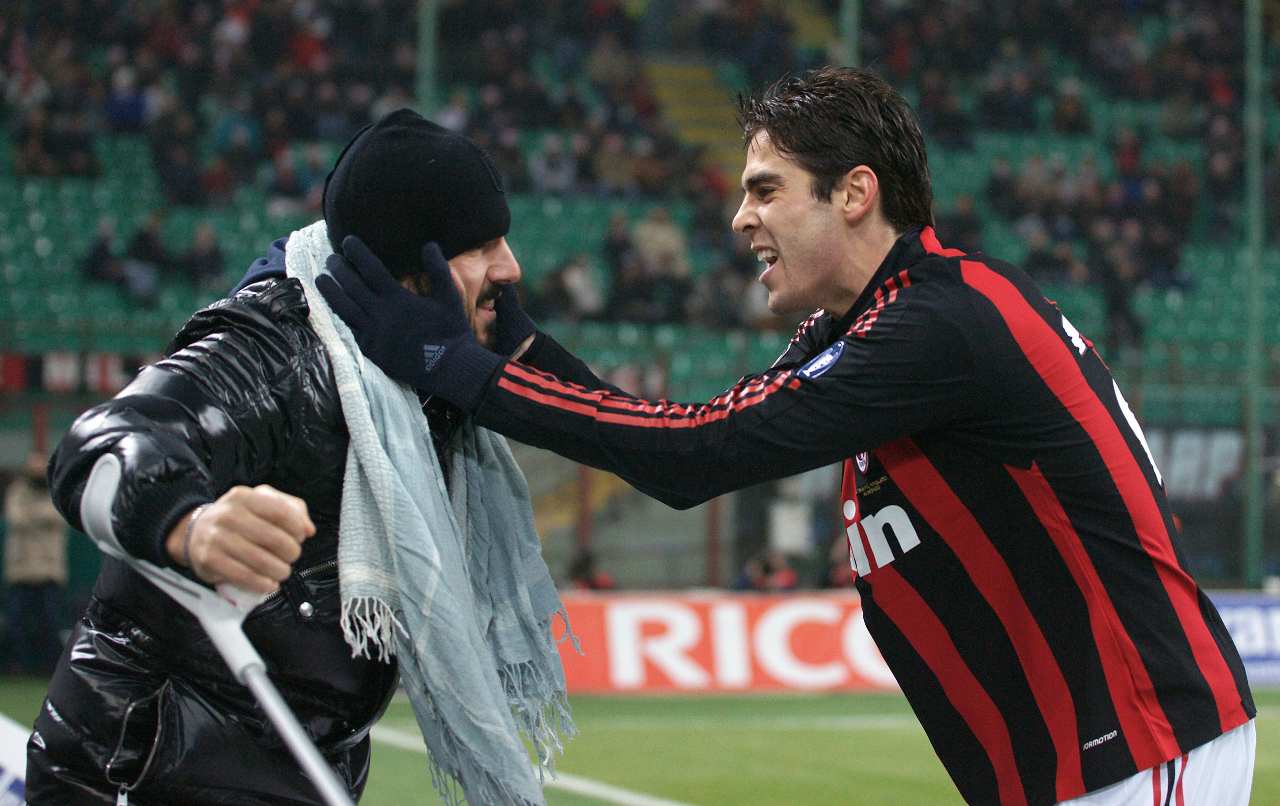
Did you ever get on the wrong side of Gennaro Gattuso?!
Alan Bird, via Instagram
Mate, there are many amazing stories about Gennaro! He’s such a nice lad – a big-hearted man – but he has that very unique style that everyone knows. Obviously the Milan players loved to make jokes about his lack of patience and his… well, let’s just say his lack of well-mannered behaviours. [Laughs]
But we’d make those jokes and sprint away so he couldn’t catch us! Believe me, he would slap your neck, with his infamous style, and I’m sure you can imagine how much it hurts. But apart from several slaps on my neck, it was a privilege to be his team-mate. He’s a generous person and a lovely friend.
What was your favourite memory from the derbies against Inter?
Antonio Greenwood, Tooting
I’d go for our victory in the Champions League quarter-finals [2004/05]. Those European clashes were great to live – really enjoyable indeed. The match is colossal by itself because that rivalry is impressive, but multiply it by playing in Europe’s biggest club competition... that doesn’t happen every day. So, it was a wonderful experience to live that derby in the Champions League, and to win. My very first goal for Milan was against Inter too, so as you can imagine, it has a special meaning for me. But to be honest, all of the goals I scored against them have a special meaning. Milan fans will understand what I mean by that.
The incredible Milan side you played in won only one league title. Do you think you should have won more, or was Serie A just so competitive then?
Liam Ryan, via Instagram
Perhaps it’s a bit of both. We obviously could have won some more titles, but it’s also true that the competition was incredibly high. Juventus, Inter, Roma and Lazio had top-quality squads. Each of those sides had amazing footballers who are now considered legends of the game. I’m talking about Francesco Totti at Roma, the great Argentine guys at Inter [such as Esteban Cambiasso and Javier Zanetti], as well as Adriano and Zlatan Ibrahimovic, and Juventus had that generation with Fabio Cannavaro, Lilian Thuram, Alessandro Del Piero, David Trezeguet and more. But we also had a strong squad. It was a beautiful moment for Serie A, because the top Italian sides were also real contenders in the Champions League. So, it’s hard to say that we should have won more league titles. We fought until the very end in every competition we played in.
How hard did the 2005 final hit you? And how did it feel to get one back on us – Liverpool – two years later?
Donny McDonald, via Instagram
Obviously it was tough. It’s so difficult to reach a Champions League final, and then we lost it in that way. I didn’t know if I’d get another opportunity to play in a European final. I was so close to lifting the trophy and, ‘Will I ever get this chance again?’ was going through my mind, unstoppably.
That defeat hurt us because it wasn’t a game where we were dominated – it was the other way around. We were in charge. But suddenly Liverpool fought back, then beat us on penalties. I was afraid I’d never get a second chance
Kaka on Istanbul 2005
That defeat hurt us because it wasn’t a game where we were dominated – it was the other way around. We were in charge. But suddenly Liverpool fought back, then beat us on penalties. I was afraid I’d never get a second chance, but thankfully it came soon and it was a relief. It’s a massive trophy and I was over the moon to help my team win it. A lot of lessons were learned; that was important for my development, too.
Was the assist for Milan’s third goal in Istanbul the best of your career?
Danny Williams, Chester
It’s definitely one of my best – not just because of its beauty, but because it was in a Champions League final. It’s a sweet feeling to do that in such an important match. But the assist can only exist if your forward puts the ball in the back of net, no? Hernan Crespo did that part brilliantly, which was so crucial to the beauty of that moment. I definitely keep that pass in a special place of my memories.
This Kaká assist is 15 years old today...Somehow it gets more beautiful with time 😍pic.twitter.com/ykiPxaJiJRMay 25, 2020
Why did you touch the Champions League trophy in 2005? Did you know it’s considered bad luck in England?
Ese Agboaye, via Facebook
I’m aware by now after hearing it from so many English friends. But I honestly don’t take into account those types of superstitions. I respect everyone who believe in these things, and a lot of my old team-mates had different types of superstitions, but not in my case. I was passing the trophy at the start of the match and thought at that moment, ‘Why not?’, so I touched it.
What was it like to play in the ‘magic quartet’ alongside Adriano, Ronaldo and Ronaldinho? Were you confident of winning the 2006 World Cup with such attacking talent?
@spursdab, via Twitter
It was a privilege to be part of it. Brazil had many top-quality players and I’m very proud to have been one of them, beside talented guys like Ronaldinho, Adriano and Ronaldo. They were all at the absolute peak of their powers. It’s also important to say, though, that we never wanted to be disconnected from the rest of the team – that’s always the most important thing. We just wanted to use that talent for the whole group’s benefit. The media sometimes like to say that an individual player won the game for the team, which isn’t a great thing to hear in the changing room.
A game can only be won by collective strength. The ‘magic quartet’ weren’t arrogant and never thought we could win anything by ourselves. We were part of a team; a very strong one, that unfortunately couldn’t win the 2006 World Cup. That generation did win other tournaments, such as the Copa America [in 2007] and Confederations Cup [in 2005], but sadly we missed out on the biggest one. It’s a shame that we couldn’t do it with such a talented squad, but it was a pleasure to be part of that team.
You were on another level in the two Champions League semi-final legs against Manchester United in 2007, scoring three goals. What’s the one display in your career that makes you feel the most proud?
Tom Joy, via Instagram
Between 2006 and 2008, I was at my peak both physically and mentally. You mature and your body understands and reacts perfectly to what needs to be done. I was calm enough to make the right decisions during that period, and I put in some great performances across those three years. Those ones against Manchester United are among the best, definitely. The two legs were unforgettable. Many Italian journalists and Milan fans consider that game at San Siro [a 3-0 win] the perfect match.
Would the 2007 Champions League win, along with the famous ‘I belong to Jesus celebration’, be the most important moment of your life?
Max Gree, via Instagram
Every title must be considered among the best moments of a player’s career, so that 2007 Champions League Final glory is one of my happiest moments. But the most important title I won was the 2002 World Cup. You know, that tournament is played every four years and you can’t beat its importance. The second-most important trophy is the Champions League. The best clubs and players compete in that competition, and it’s really hard to be champions of Europe. That moment I dropped to my knees on the pitch and prayed is such a special moment of my life.
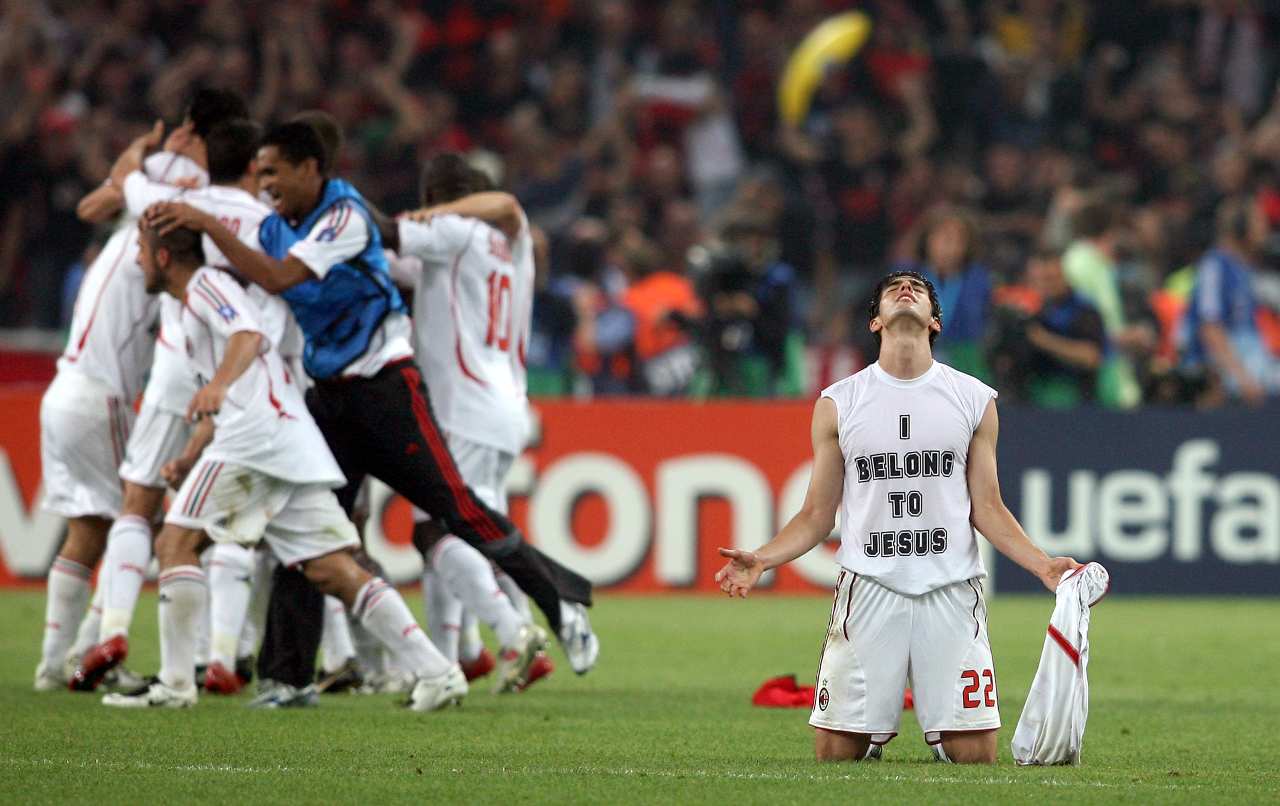
Lionel Messi and Cristiano Ronaldo were regarded as the world’s best players for a large part of 10 years. How did it feel to collect the 2007 Ballon d’Or ahead of them?
@iambal09, via Twitter
That was really cool, mate. A touching moment. There I was, stood holding the award for being the world’s best footballer, and a lot of thoughts came through my mind. I was recalling all my early dreams as a kid; that dream every kid has to become a professional player. And then you’re being named the best of them? It’s unbelievable – a fantastic feeling.
I tried not to let it make me arrogant, though. I never actually thought I was the best, and that isn’t false modesty. I’m aware of my importance in those collective glories with Milan, and I only won the award because of those titles. The team won the competitions, and I could only be named the world’s best because we had a brilliant goalkeeper pulling off saves, with a solid defence ahead of him, and so on. You’re better avoiding the mistake of thinking you’re the best. Still, it’s awesome to have the award here at home. When my son’s friends come here, they’re like, “Titio [Uncle], wow, this is a Ballon d’Or!” It’s nice. I like the feeling. But I tell them to value the team, as it’s the only way to win anything in football.
Is there any truth in the rumour that you rejected Roman Abramovich’s offer to join Chelsea in 2009, before signing for Real Madrid?
Braa Charles Annor-Frempong, via Facebook
No, there wasn’t an official approach from Chelsea in 2009 – just informal talks, as Ancelotti was taking charge there and we had a great relationship. The real offer I got from an English club was Manchester City’s, around six months before I moved to Madrid. City were in the early days of their project to become a dominant club in Europe, and they wanted me to be one of their leaders on the pitch. But I didn’t think it was the right time to leave Milan.
In my mind, Real Madrid was the only club I’d ever consider going to if Milan wanted me to leave. That wasn’t the politics of Milan, though: at the time, it wasn’t common for them to sell big players. The first to leave was [Andriy] Shevchenko, but the club didn’t want to let him go. They forced Sheva to make his wish to leave public – he had to announce his intentions in a press conference. It was different in my case. When City made the offer, Milan told me they were happy with it and keen to go ahead with the deal, to organise their finances. The doors were open to leave, and I said no. But I also told the club I’d happily go to Real Madrid if an offer came in the next window. It did.
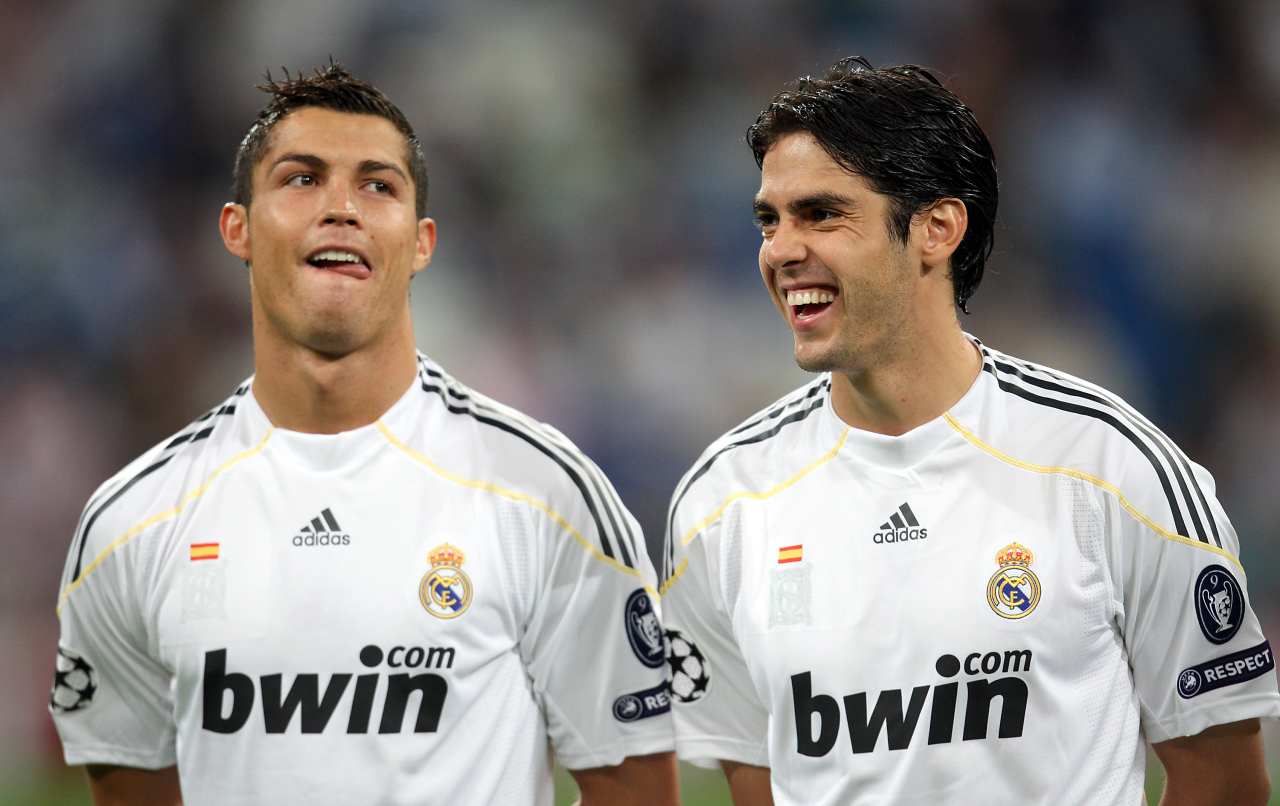
Would you still have joined Madrid if you knew that Cristiano Ronaldo was also going to sign that summer?
Rob Stevens, via Instagram
If I’d known he was also going to Real, it would have made my decision even easier! Nothing is more important in football than playing in a strong side with the world’s best players. That is what you want as a player. You want to win big trophies – that’s the reason you play the game. And how much easier is it to get your hands on titles than by playing alongside the best? When I learned that Cristiano Ronaldo was coming, I told him, “Hurry up, the team is getting stronger now!” It was amazing to be his team-mate for four years. We’re still very good friends and keep in touch every now and again.
With which player did you have the best connection on a football pitch?
‘mygreatest11’, via Instagram
It’s hard to mention just one, because I had a few great partnerships on the pitch. In Brazilian football, I had a very good connection with Luis Fabiano, for both Sao Paulo and the Selecao. With the national team, I’d also hqve to say Elano, Ronaldinho and Ronaldo – we had a perfect understanding. In club terms, at Milan I’d say Filippo Inzaghi and Andriy Shevchenko. We got along really well, and for a long time on and off the pitch. It’s good to remember these things. They were never planned – connections always happen naturally and those were enjoyable.
Which current player do you think is the closest to yourself in terms of playing style?
Brady Frost, via Twitter
To be honest, it’s tough to find similar characteristics in terms of someone’s playing style, as football has changed a lot. Its systems aren’t the same as they used to be, and that has a huge impact on players’ style. It’s now more common to see teams selecting three forwards, whereas I played more as a trequartista, as they say in Italy – an advanced midfield position; the guy who links midfield and attack. It’s rare to find this role today, so consequently it’s pretty hard to name a player who’s quite like me.
THREAD: Great Kaká goals! 🇧🇷🗣️ "It was a very special goal for me, as it was an important match and a beautiful finish."1⃣ Unforgettable solo effort against Manchester United in 2007 ⚽️#UCL | @KAKA pic.twitter.com/Yrgch0lTPoFebruary 11, 2021
You scored more than 200 goals for club and country across your career. Do you have a favourite?
Greg Morter, via Facebook
For club, it’s my second at Old Trafford, because it was a beautiful goal as well as very important. For Brazil, the most important goal was against Croatia at the 2006 World Cup: it was just before half-time and ended up being the only goal. But I must mention one I scored against Argentina in a 2006 friendly at Arsenal’s stadium. I basically ran from box to box and had Leo Messi running behind me, trying to stop me. I’ve got a lot of affection for that.
Subscribe to FourFourTwo today! Guarantee the finest football stories and interviews dropping on your doorstep first every month.
NOW READ
YOU ASK THE QUESTIONS Ricardo Carvalho: "Jose Mourinho doesn’t accept losses very well"
QUIZ Can you name every British team to play in a European final?
FEATURE Rafa Benitez: “Protest banners? There weren’t too many, and they were only A4”
 Join The Club
Join The Club





